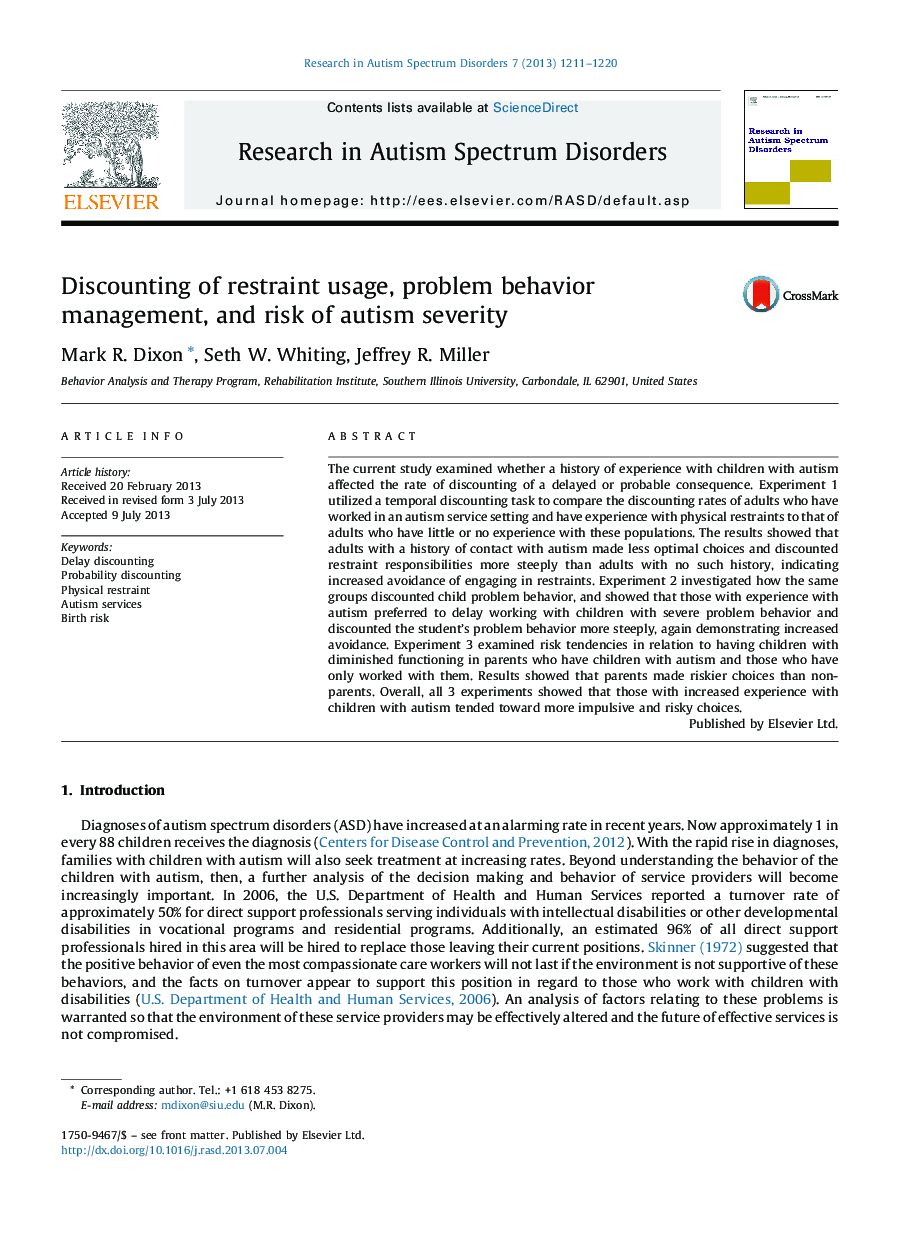| Article ID | Journal | Published Year | Pages | File Type |
|---|---|---|---|---|
| 370234 | Research in Autism Spectrum Disorders | 2013 | 10 Pages |
•We compare discounting rates of rehabilitation students and control individuals.•Those with a history in autism services were more likely to avoid use of physical restraints.•Those with a history in autism services were more likely to avoid working with children with greater problem behavior.•Parents with children with autism tended to make riskier choices than adults without children with autism.•Overall, those with a history in autism demonstrated more impulsive decision making.
The current study examined whether a history of experience with children with autism affected the rate of discounting of a delayed or probable consequence. Experiment 1 utilized a temporal discounting task to compare the discounting rates of adults who have worked in an autism service setting and have experience with physical restraints to that of adults who have little or no experience with these populations. The results showed that adults with a history of contact with autism made less optimal choices and discounted restraint responsibilities more steeply than adults with no such history, indicating increased avoidance of engaging in restraints. Experiment 2 investigated how the same groups discounted child problem behavior, and showed that those with experience with autism preferred to delay working with children with severe problem behavior and discounted the student's problem behavior more steeply, again demonstrating increased avoidance. Experiment 3 examined risk tendencies in relation to having children with diminished functioning in parents who have children with autism and those who have only worked with them. Results showed that parents made riskier choices than non-parents. Overall, all 3 experiments showed that those with increased experience with children with autism tended toward more impulsive and risky choices.
